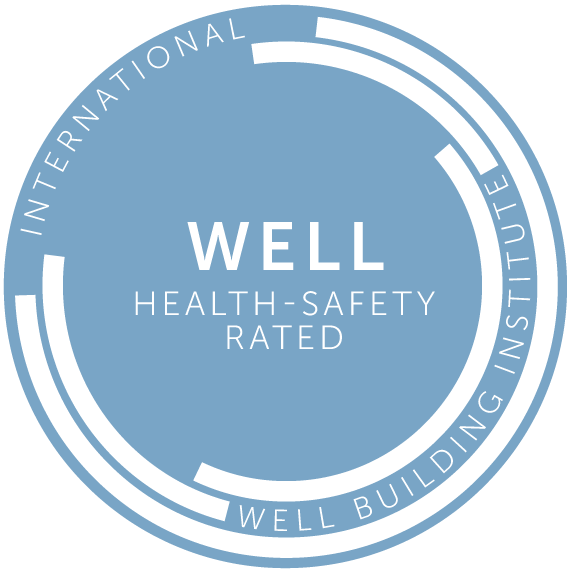Healthy Eating to Prevent, Treat and Reverse Chronic Disease: What Should We Be Telling Our Patients?
Dr. Michael Parkinson, M.D., M.P.H., F.A.C.P.M. | Senior Medical Director, Health and Productivity, UPMC Health Plan and WorkPartners
Watch This Presentation:
Dr. Michael Parkinson, senior medical director at UPMC, discussed the necessity to train doctors in lifestyle medicine to efficiently help patients fight chronic disease in his presentation "Healthy Eating to Prevent, Treat, and Reverse Chronic Disease: What Should We be Telling Our Patients?"
If a 10-year-old child comes into the doctor's office for a visit with obesity, asthma and multiple chronic issues, what can a doctor do for him in a 15-minute visit? Dr. Parkinson examined the changes that are necessarily on the clinical level to have more of an impact on patients' health.
"What do we do to prevent, treat, and even reverse [diseases] that are not only killing us in the United States but are now exporting around the world as other societies become wealthier," said Dr. Parkinson. "We call it the McLipitor Syndrome, which is why we got to be one of the most overmedicated countries in the world, with quick fixes for things that are not quick or can be fixed with a pill." This mindset is detrimental to the population's health, and real changes need to be made to reduce mortality rates. By incorporating a lifestyle with a Mediterranean or Asian diet, not smoking, daily activity and moderate alcohol consumption all together, we can drastically reduce diseases such as obesity, type 2 diabetes, cardiac disease, cancer and depression.
"Unhealthy diets, lack of physical activity, high stress, and a lot of the medications we take to treat these very conditions….lead to inflammation," Dr. Parkinson continued. "Inflammation is the common pathway to obesity, type 2 diabetes, cardiovascular disease, 70% of cancers, depression and anxiety. If we address this as a medical issue we can move it into the medical thinking."
According to the American College of Cardiology, people with cardiac disease need to be on a whole plant-based diet. As meat consumption continues to increase, it is evident that the American diet is not moving forward in the way that it should, falling behind the diets of other countries.
So what is it that physicians need so they can help? "Knowledge and skill training," said Dr. Parkinson. When doctors are not confident in their training in nutrition, they may be hesitant to help in the way a patient needs. "We asked our own doctors, ‘What are the barriers to you actually engaging your patient on healthy eating, physical activity, and stress management?' And what they said was, ‘We don't know what we're doing. I don't have the time, I'm not sure what resources are available, I have inadequate knowledge and skills about the subject.'"
What they can prescribe is what Dr. Parkinson calls "lifestyle medicine." They key components of lifestyle medicine are "eat, move, think" — prescribing a plant-based diet, physical activity, stress reduction and mindfulness. For patients who are on a track for disease, this may be the best medicine.
Additional Resources:

About the Speaker
Dr. Parkinson is the senior medical director overseeing employer health and productivity strategies for UPMC Health Plan and WorkPartners. He formerly was executive vice president and chief health and medical officer of Lumenos, a national pioneer of consumer-directed health plans acquired by Wellpoint. Mike is the past president of the American College of Preventive Medicine, the national medical specialty society of physicians trained in and committed to disease prevention, health promotion and systems-based approaches to improving health and health care. A retired Air Force colonel, his final assignment was as associate director of medical programs and resources in the Office of the Surgeon General where he was responsible for policy and planning for over 2 million beneficiaries, 70 facilities and a $4 billion budget. While assigned to the US Public Health Service, he provided oversight of federal programs in public health, geriatrics and preventive medicine training. He served on the National Advisory Committee of the Robert Wood Johnson Foundation Health Care Purchasing Institute assisting employers to purchase higher quality care. Mike was vice chair of the American Board of Preventive Medicine and a member of the Residency Review Committee. Other appointments included the Institute of Medicine (IOM) Committee reviewing NASA employee health programs, and serving as faculty for the 14-cities Robert Wood Johnson Foundation “Aligning Forces for Quality” project. He currently serves on the Policy Committee of the Great Rivers Affiliate American Heart Association, DOD Defense Health Board and IOM Board on Select Populations. He is a member of the editorial boards of the American Journal of Preventive Medicine and American Journal of Medical Quality. Dr. Parkinson received the Air Force Legion of Merit, Distinguished Service Award of the American College of Preventive Medicine, and Distinguished Graduate Award from the Johns Hopkins School of Public Health. He received his A.B. from Cornell University, M.D. from George Washington University, family practice training at UCLA and M.P.H., preventive medicine residency and chief residency at Johns Hopkins.




